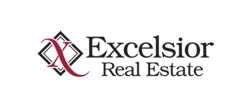If you've ever been involved in buying or selling Excelsior MN houses, chances are you've come across the term "escrow." But exactly what is escrow in real estate transactions, and why is it such an important part?
Well, think of escrow as your trusty sidekick during this exhilarating journey. Imagine having someone hold onto your money or property until all the necessary conditions are met. That's where escrow comes into play.
Escrow serves as a neutral third party that mitigates potential risks for both buyers and sellers throughout the transaction process. When executed correctly with an experienced escrow agent overseeing things, it helps maintain harmony and ensures everything goes smoothly till closing day.
But let's dive deeper into what exactly happens behind closed doors when it comes to using escrow for your real estate dealings.

What Is Escrow in Real Estate?
Escrow in real estate is essentially a financial arrangement where an impartial third party, often an escrow company or title company, holds funds and important documents related to a property transaction. It acts as a safety net for both the buyer and seller during the complex process of buying or selling homes.
Suppose you're purchasing your dream house. But before handing over all that hard-earned money to the seller, wouldn't it be nice to ensure that everything aligns perfectly? That's exactly what escrow does! It protects your interests by ensuring that everyone fulfills their obligations according to the agreed-upon terms. So when it comes time for the closing day – rest assured – those keys will find themselves right into your eager hands!
How Does Escrow Work?
Escrow works by creating a secure holding place where money or property is held until the terms and conditions of a real estate transaction are satisfied. It serves as a protective measure for both buyers and sellers, ensuring that everyone fulfills their obligations before the deal is finalized.
Let's say you're buying a property. You'll typically make an earnest money deposit into escrow to show your commitment to purchasing the property. The funds will be held in an escrow account until all contingencies in the purchase agreement (like inspections and financing) are met.
What Is an Escrow Account?
In real estate, an escrow account serves two important purposes. First, it safeguards the buyer's earnest money deposit until it is properly disbursed according to the terms of the sale. Second, it holds funds for expenses like property taxes and homeowners insurance.
You'll encounter two types of escrow accounts in this journey. During the home-buying process, you can expect a dedicated escrow account to hold your earnest money deposit securely until the closing day arrives. After that, another kind of escrow account comes into play—it helps manage ongoing payments for things like insurance and property tax as part of your monthly mortgage payment.
Types of Escrow Accounts
When it comes to escrow accounts, there are two main players on the scene. Mortgage Escrow Account and Non-Real Estate Escrow Accounts. These powerhouses serve different purposes but share one common goal—an added layer of protection for home buyers and sellers alike.
-
Mortgage Escrow Account
As you embark on a homeownership adventure, a mortgage escrow account becomes an invaluable ally. This special type of escrow account accompanies you from loan closing all the way through the life of your loan.
Here's how it works: Instead of juggling separate payments for property taxes and homeowners insurance, you make one monthly payment to your lender, which includes these expenses. The lender then sets aside that portion in an escrow account. When tax and insurance bills come knocking at your door, fear not! Your trusted mortgage company takes care of paying them like clockwork.
In fact, many lenders require borrowers financing over 80% of a home's value to have an escrow account—a real budgeting boon for first-time buyers! -
Non-Real Estate Escrow Accounts
Escrow accounts aren't limited to just real estate transactions. They're like trusty superheroes, swooping in wherever protection is needed until agreed-upon terms are met.
Think about renters' escrow accounts. If you've ever rented an apartment or house, you know that landlords don't always deliver promised repairs or improvements on time. But with a renter's escrow account, you can place your rent money with a neutral third party who will release it to the landlord only when those much-needed fixes are finally made.
Again, the rise of e-commerce has made digital buyers and sellers rely on escrow for added security. Here's how it plays out: You make an online purchase and put the purchase price into an escrow account—a middleman holds onto these funds until your precious package arrives safely at your doorstep. This way, both buyer and seller have peace of mind knowing that payment won't be released until everything goes smoothly.
Steps in the Escrow Process
The escrow process can sometimes feel like a whirlwind, with various steps to navigate along the way. From opening an escrow account to closing on your dream home, each milestone holds its own significance.
-
Opening an escrow account
The first step in the escrow process is opening an escrow account, typically initiated by the seller but sometimes handled by the buyer as well. This involves making a deposit, known as earnest money, to show your commitment to purchasing the property.
According to Ralph DiBugnara, president of Home Qualified, this payment is usually split into two parts: an initial deposit followed by the remaining amount within 7-10 days of signing the contract. Your trusted agent will oversee this account, whether it's a title company, bank, or private third party assigned to handle escrows.
In some cases where a real estate attorney manages this process instead, it may be referred to as "settlement" rather than "escrow." -
Appraisal and home inspection
Once the initial stages of escrow are underway, it's time for the appraisal and home inspection. Your mortgage lender will order an appraisal to determine the value of the house you're buying. If the appraised value falls short, there might be some negotiating involved.
Meanwhile, as a buyer, you have every right to hire a home inspector who delves deep into every nook and cranny of your potential new abode. They'll ensure that its structure is solid as a rock while checking electrical systems, plumbing pipelines - all those essential components that make or break "home sweet home." It pays off in peace of mind! -
Obtaining insurance coverage
When it comes to buying a home, insurance is key! Your mortgage lender will insist on homeowners insurance coverage for the property. This protects you and your investment from unexpected damages or disasters.
Additionally, you'll need title insurance to ensure that no ownership disputes arise down the road. Remember, while title insurance primarily safeguards your lender's interests by default, getting an additional owner's policy puts you in control of protecting your own rights as well. -
Final walkthrough
Before the closing day excitement sets in, you'll have a chance to do a final walkthrough of your new home. This last visit ensures there are no surprises or damage lurking around and confirms that the seller has stuck to their end of the deal.
During this walkthrough, it's important to check for any unexpected changes or issues like water pressure problems or plumbing leaks. Running all faucets, sinks, showers, tubs, and dishwashers will help uncover any potential hiccups before they become major headaches.
Remember: once everything looks good during the final walkthrough, backing out becomes increasingly difficult without running into legal complications down the line. -
Closing
At least three business days before closing, your lender will provide you with a closing disclosure document. It will outline all the final costs, including escrow amounts. Make sure to review this document and compare it with your initial loan estimate for any changes.
During the actual closing process, an escrow agent will prepare a document appointing you as the proud homeowner. This official record is then filed at the local records office. The funds needed to settle payment obligations are wired from your escrow account so both parties can receive their due payments efficiently.
To cover remaining down payments and other expenses associated with closing costs, be prepared by having a cashier's check ready on hand when sealing those last few important signatures!
Pros of an Escrow Account
When it comes to real estate transactions, having an escrow account is like having a security blanket. It brings peace of mind and safeguards the interests of everyone involved. Let's take a closer look at what makes escrow so beneficial from different perspectives.
For Buyers: Having an escrow account as a buyer offers invaluable protection. Consider this scenario: You've found your dream home, but during the inspection process, black mold is discovered in the crawl space. The seller refuses to address the issue and keeps your deposit when you back out. Without an escrow account, recovering your money could be a daunting legal battle.
However, with funds held in escrow, you can rest assured that your earnest money deposit will be returned promptly and fairly - whether unforeseen circumstances arise or if negotiations fall through due to reasons beyond your control.
For Sellers: An escrow account offers sellers a sense of security, ensuring that the buyer's earnest money deposit is held in trust. It brings peace of mind by assuring them that the funds are available and protected until closing day.
Without an escrow account, buyers may hesitate to make a good-faith deposit at the start. This lack of assurance can potentially hinder real estate transactions. With escrow accounts, both parties can confidently proceed, knowing that their interests are being safeguarded throughout the process.
For Lenders: Lenders have a vested interest in ensuring that payments, like property taxes and insurance premiums, are made on time. With the protection provided by an escrow account, lenders can rest easy knowing that property tax and insurance payments will always be taken care of.
This minimizes the risk for both parties involved - if tax payments aren't made, or there's major damage to the property without adequate coverage, it could lead to financial losses for both homeowners and lenders.
For Homeowners After the Transaction: Once you've closed on your dream home, having an escrow account continues to work its magic. One major advantage is easy budgeting - no more fretting over setting aside money every month to cover property taxes and homeowners insurance.
With your mortgage payment, a portion goes into the escrow account each month. Your lender then takes care of paying those bills when they are due, saving you the hassle of keeping track or managing multiple billing cycles.
Cons of an Escrow Account
While escrow accounts are generally beneficial, it's important to consider the potential drawbacks. Let's take a closer look at some cons you should be aware of.
- Higher Monthly Bills: One common concern is that having an escrow account can lead to higher monthly bills. This is because your mortgage lender collects money for property taxes and homeowners insurance on your behalf. This gets added to your monthly mortgage payment.
- Inconsistent Fees: Another downside is that fees associated with escrow accounts may vary and change over time from one year to another. That makes budgeting somewhat tricky when dealing with fluctuating expenses - such as property tax or insurance premiums.
- Bad Estimates: Estimating the correct amount needed for property taxes or insurance can sometimes prove challenging. Especially if there have been sudden changes in assessments or policy costs within a specific area—a factor not entirely within control during home purchase negotiations.
How Long Do You Pay Escrow?
When it comes to the duration of your escrow account, there are a couple of aspects to consider. The real estate escrow fee is a one-time charge that you pay as part of your closing costs. So don't worry about making continuous payments on that.
However, when we talk about mortgage escrows, things work slightly differently. With each monthly mortgage payment you make, a portion goes towards your escrow account to cover expenses like property tax and homeowners insurance.
While most mortgages have fixed terms ranging from 15 to 30 years, typically, these mortgage escrows last for the same length as your loan term itself.
How Much Does Escrow Cost?
It all depends on who bears the responsibilitFind a Real Estate Agent
y: the buyer or seller (or maybe even both). Typically, you can expect to pay around 1% to 2% of the total home purchase price for this real estate service. Keep in mind, though; these figures may differ from one transaction to another.
Find a Real Estate Agent
When embarking on your real estate journey, it's crucial to have the guidance of a knowledgeable and experienced real estate agent. And this is where Excelsior Realty comes in! With our expertise in Minnesota's local market and more than a decade of experience, we can help you navigate through the intricate process of buying or selling your dream home.
A reliable real estate agent like Excelsior Realty will not only assist you in finding potential properties but also ensure that all escrow-related matters are handled professionally. We will work hand-in-hand with an escrow officer to oversee every step, from negotiating sales contracts to coordinating payments held securely until closing day.
Rest assured, knowing that Excelsior Realty has got your back throughout your entire transaction. Give us a call today for anything real estate!


